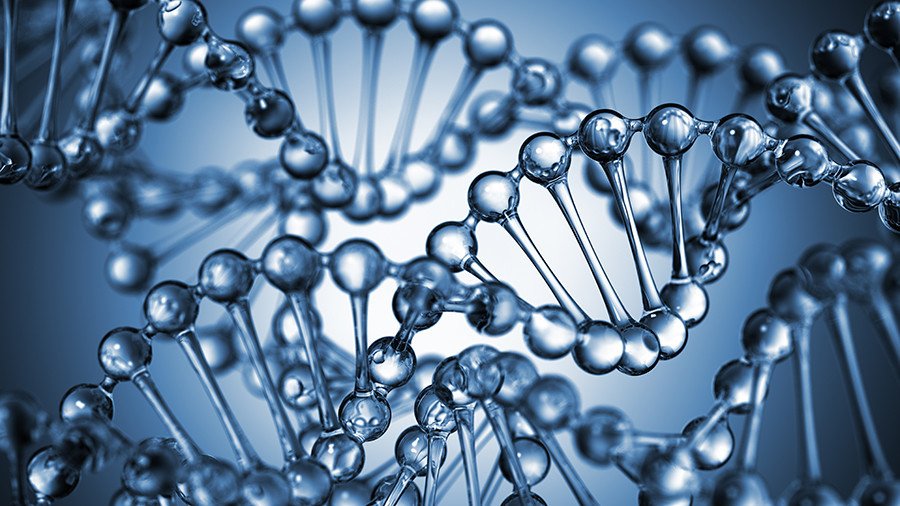‘It becomes part of your DNA’: Internal human gene-editing gets first trial

A California man suffering from a rare disease has become the first person ever to undergo an attempt to edit genes inside the body – however it’s not clear what side-effects could result from the groundbreaking procedure.
The experiment was carried out on Brian Madeux, a 44 year old with Hunter Syndrome, a metabolic disease that affects fewer than 10,000 people around the world.
Madeux receives expensive weekly treatment to replace missing enzymes essential for breaking down certain carbohydrates. While the experiment will not eradicate the disease, it’s hoped that a successful test will mean he will no longer have to undergo these regular treatments which can cost between $100,000 to $400,000 a year.
READ MORE: 'Ingenious': Chinese scientists edit human embryo, could end hereditary disease
In the experiment, scientists intravenously inserted billions of copies of a corrective gene into DNA cut with a molecular scissors, known as ‘zinc fingers’. Once inside the body, the new gene and zinc fingers travel to the liver where the DNA is snipped and the fix is stitched into place. Scientists hope the remade cells will then begin producing the enzyme Madeux currently lacks.
Dr Sandy Macrae of Sangamo Therapeutics, the California company testing this for two metabolic diseases and hemophilia described the technique as “invisible mending”."It becomes part of your DNA and is there for the rest of your life," Dr Macrae told AP.
'Breakdown of society': gene-edited mutant ants create chaotic colony https://t.co/puac6WPIsY
— RT (@RT_com) August 11, 2017
Although groundbreaking, the experiment carries inherent risks in so far as side-effects cannot be predicted and there is no erasing mistakes the editing might cause. Madeux said he was humbled to be the first to take part in the ground-breaking study. "I'm willing to take that risk,” he said. “Hopefully it will help me and other people."
Patients with Hunter Syndrome can suffer frequent infections of the throat and ear, distorted facial features, and hearing loss, as well as heart, breathing and cognitive issues. Many become wheelchair-bound and dependent on carers until they die. Madeux himself has undergone 26 operations to fix problems with hernias and eyes.
READ MORE: DNA of human embryos edited for 1st time in US – report
The results of the test will not become clear for three months but already doctors are excited about the potential of a technique that avoids the morally and ethical questions inherent in CRISPR, a gene-editing tool which alters the genetic code of human embryos.
In July, a team of researchers in Oregon became the first to create genetically modified human embryos in the US. Federal regulations bar scientists in the US from turning an edited embryo into a baby, with many critics worried genetic enhancements will lead to “designer babies.”












